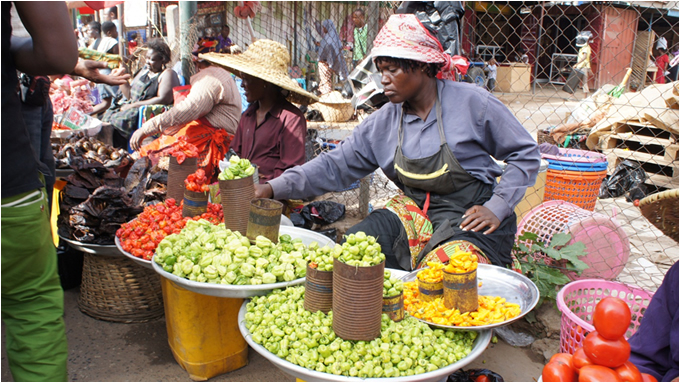Economist: Government must not allow global factors to determine food prices

An economist, Dr Laud Mensah, has advised the government to put in place pragmatic steps to reduce food price inflation in Ghana.
Mensah says the government’s inability to stock up on some essential food items such as rice and maize is seriously contributing to the continuous increase in inflation.
Speaking on Asaase Radio’s current affairs show The Forum on Saturday (18 June 2022), Mensah said: “We should have made a conscious effort to stock up on rice and maize which are arguably foods seen in every household. But we have allowed global factors to impact its supply.
“Our lives revolve around what we eat. Food inflation should have never become a problem for us especially because of our geographic location but here we are.
“In every country, if there is food inflation, then clearly the economy will be hit and hit badly,” he said.
Mensah called on the government to use practise fiscal discipline
“Revenue generation is an issue but how we spend the revenue that we gather has been an even worse problem … There are many grey areas that can be put within the tax net but how we have used the revenue has been an issue for a long time,” he said.
Inflation rate for May hits 27.6%
The national year-on-year inflation rate was 27.6% in May 2022, which is 4 percentage points higher than the 23.6% recorded for April 2022, the Ghana Statistical Service (GSS) has said.
This means that in the month of May the general price level was 27.6% higher than in May 2021.
According to the GSS, month-on-month inflation between April and May 2022 was 4.1%.
Between April and May 2022, food Inflation went up by 3.5 percentage points (from 26.6% to 30.1%) and non-food inflation 4.4 percentage points (from 21.3% to 25.7%).
Food inflation for May 2022 relative to the rolling average for the period June 2021 to May 2022 has more than doubled.
The margin between month-on-month food and non-food is 0.1 percentage points, with food inflation recording 4.0% and inflation for non-food items 4.1%.
Imported inflation (28.2%) sustains its dominance over domestic inflation (27.3%) by a margin of 0.9 percentage points.





